#* Express.js
Photo
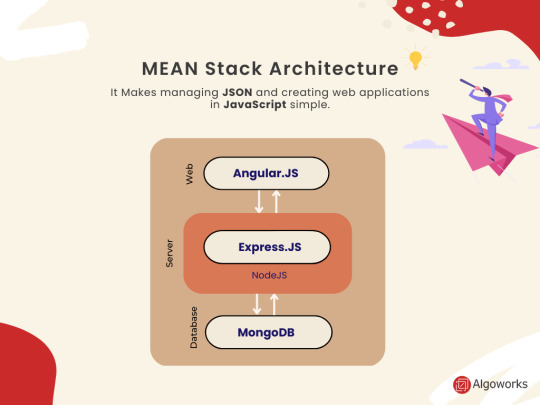
MEAN Stack: the best way to start your journey with JavaScript.
For more information, Visit our Web Page: https://www.algoworks.com/web-development-services/mean-stack/
#javascript#javascriptframework#mean stack#stack#js#node.js#angular#angular js#mongodb#express.js#algoworks
2 notes
·
View notes
Text


40/100
esta entrada corresponde al Domingo 8.
Y finalmente el certificado. Mi primer certificado dentro de esta saga de 100 días de productividad. Realmente no demore las horas de práctica que el curso pedía porque ya sabia al menos el 85% del curso, solo al final la parte de servidores se me complicó un poco. Pero este es solo el inicio de terminar los cursos que pagué :).
El certificado dice día 9 porque hice el examen después de medianoche.
No se si tiene algún sentido borrar mi nombre de las imágenes, pero me da un poco de paranoia que esté ahí.
Una menos para la to do list.
---
This post is for Sunday the 8th.
And finally the certificate. My first certificate in this saga of 100 days of productivity. I really didn't delay the hours of practice that the course required because I already knew at least 85% of the course, only at the end the server part got a little complicated. But this is just the beginning of finishing the courses I paid for :).
The certificate says day 9 because I took the exam after midnight.
I don't know if it makes any sense to erase my name from the images, but it makes me a little paranoid that it's there.
One less for the to do list.
#personal#diario#diary#blog#studyblr#codeblr#100 days of productivity#100dop#100 dias de productividad#100 dop#html#css#javascript#node.js#express.js#japanese stationary#stationary#girls in stem#stem#tech#tech girl#studyinspo#studinspo#studyblog#planner#printables#free printables
0 notes
Text
Node.js and MongoDB: Building a CRUD Application
Learn how to build a CRUD application with Node.js and MongoDB. This comprehensive guide covers setting up a server, connecting to a database, implementing CRUD operations, and more.
Introduction
Node.js and MongoDB form a powerful combination for building modern web applications. MongoDB, a NoSQL database, provides flexibility in storing and managing data, while Node.js offers an efficient runtime for building scalable server-side applications. In this guide, we’ll build a practical CRUD (Create, Read, Update, Delete) application—a simple Task Manager—using Node.js and…
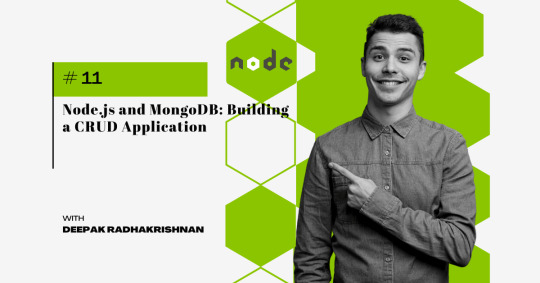
View On WordPress
#API development#CRUD application#database integration#Express.js#JavaScript#MongoDB#Node.js#web development
0 notes
Text
Discover the Potential of MEAN: A Comprehensive Guide to Up-to-date Web Development.
Master creating fast, scalable, and efficient applications with our comprehensive guide to harnessing the full potential of MEAN Stack.
#meanstack#Angular#Express.js#webapplicationframework#MongoDB#Node.js#IoT#progressivewebapplications
1 note
·
View note
Text
Best MERN Full Stack Developer Course in India
Unlock your potential as a Best MERN Full Stack Developer Course in India. Dive into MongoDB, Express, React, and Node.js. Master the art of building dynamic web applications. Elevate your career with our comprehensive MERN program.
#Full Stack Developer Online Course With Mern In India#Top MERN Stack Courses Online in India#MERN Full Stack Web Development Course in India#MongoDB Online course in India#Express.js Online course in India#Best React Online course in India#Best Node Js Course Online In India#Online Fullstack Web Development Course Mern
0 notes
Text
Express.js Essentials: A Hands-On Tutorial for Crafting Robust APIs and Web Apps

Are you eager to enhance your web development skills? Look no further than this Express.js tutorial! Express.js, built on top of Node.js, simplifies the creation of web applications and APIs. Let's embark on a journey to understand its fundamentals.
Firstly, grasp the basics of setting up Express.js. Install Node.js and initialize your project. Then, dive into routing. Express.js facilitates route handling, allowing you to define endpoints for various HTTP requests easily.
Next, explore middleware, the backbone of Express.js. Middleware functions execute tasks such as authentication, logging, and error handling. Harness their power to streamline your application's workflow.
Furthermore, delve into template engines like EJS or Pug for dynamic content rendering. With Express.js, rendering HTML becomes a breeze, enabling you to create visually stunning web pages.
Finally, learn about database integration. Connect your Express.js application to databases like MongoDB or MySQL to store and retrieve data seamlessly.
With this Express.js tutorial, you're equipped to embark on exciting web development projects. Visit TutorialAndExample for more in-depth insights and resources on Express.js.
0 notes
Text

Discover the fundamentals of Express.js with our comprehensive tutorial. Learn how to build powerful web applications and APIs using Node.js and Express in this beginner-friendly guide.
0 notes
Text
MERN stack development is a full-stack web development framework that uses MongoDB, Express.js, React, and Node.js to create dynamic and robust web applications. MongoDB is a NoSQL database that stores data in JSON format, while Express.js is a backend web application framework that provides a set of tools for building APIs. React is a frontend JavaScript library for building user interfaces, and Node.js is a server-side runtime environment that allows for JavaScript to be run on the server. Together, these technologies make MERN a powerful and efficient development stack for building modern web applications.
#* Full-stack web development#* JavaScript#* MongoDB#* Express.js#* React#* Node.js#* Frontend development#* Backend development#* Web application development#* RESTful APIs#* Single-page applications#* Scalable architecture#* Agile development#* MVC architecture#* JSON data format#* NPM (Node Package Manager)#* Git and version control#* Cloud deployment#* DevOps#* Web development frameworks.
0 notes
Text
Hi, I'm Su! 💫
I've been on tumblr for ages, but I decided to create this blog to document my progress with learning web dev!
About me:
I'm 25, mexican-american, and I have an orange cat 🐱 (hence the avi, although I'm well aware it looks more like a fox lol)
I really struggle with undiagnosed adhd, so sometimes I'll get in ruts that last anywhere from a couple of days to a couple of months :(
I have a biochemistry degree but never used it because I thought I wanted to be a pharmacist lmao
Used to be a teacher but fuck that fr (me and the US dept. of education have beef)
I'm currently enrolled part time in a full-stack coding bootcamp
~ ~ ~ ~ ~ ~ ~ ~ ~ ~ ~ ~ ~ ~ ~ ~ ~ ~ ~ ~ ~ ~ ~ ~ ~ ~ ~ ~ ~ ~ ~ ~ ~ ~ ~ ~ ~ ~ ~ ~ ~ ~
Goals for this blog:
❤️🔥 keep me motivated and inspired
🖊 post updates on things i've worked on/accomplished
📚 reblog resources for future reference
~ ~ ~ ~ ~ ~ ~ ~ ~ ~ ~ ~ ~ ~ ~ ~ ~ ~ ~ ~ ~ ~ ~ ~ ~ ~ ~ ~ ~ ~ ~ ~ ~ ~ ~ ~ ~ ~ ~ ~ ~ ~
Languages I'm learning:
HTML
CSS
Javascript
node.js/express.js/handlebars.js
MySQL
#sucodes#codeblr#coding#programming#html#learn to code#frontenddevelopment#backenddevelopment#css#javascript
76 notes
·
View notes
Text
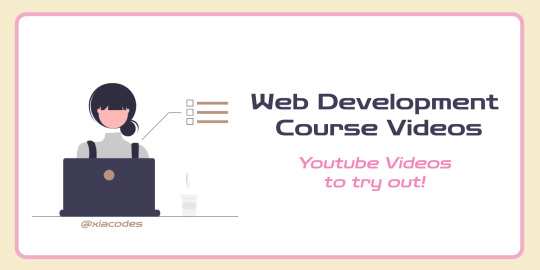
Hiya! Just wanted to share some Web Dev learning course videos I found really helpful! They're all pretty long and full of content! These videos can be the foundation of your web development journey and be used as a reference! If you do decide to work through the videos, do remember to code along - the best way to learn is by doing and, with programming especially, creating projects as well to apply what you've learned!
Most of the videos, if not at all, cover things like:
HTML5
CSS3
JavaScript
Responsive Design + Mobile design
jQuery
GitHub Tutorials
Tailwind CSS fundamentals
React fundamentals
Node.js
Next.js and more!
Now, onto the videos themselves below!
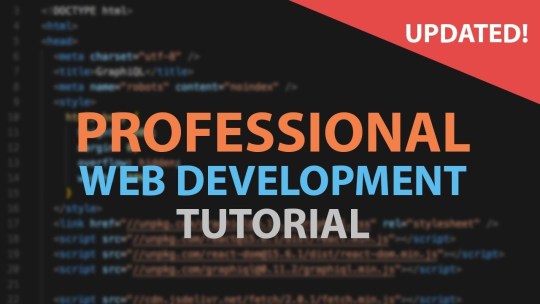
Web Development Tutorials For Beginners playlist by LearnCode.academy [link] 💻
Covers: HTML5, CSS, JavaScript, GitHub, Responsive Design

Full Course Web Development [22 Hours] | Learn Full Stack Web Development From Scratch by Codedamn [link] 💻
Covers: HTML5, CSS, JavaScript, React, Tailwind CSS, React Query, Node.js, Next.js
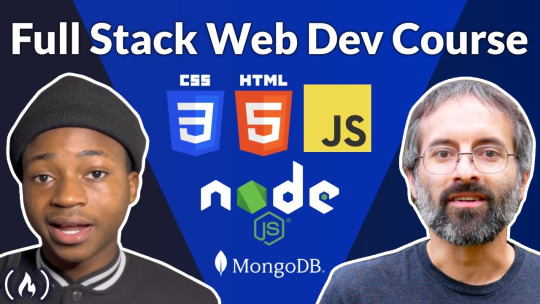
Full Stack Web Development for Beginners by FreeCodeCamp.org [link]
Covers: HTML, CSS, JavaScript, Node.js, MongoDB
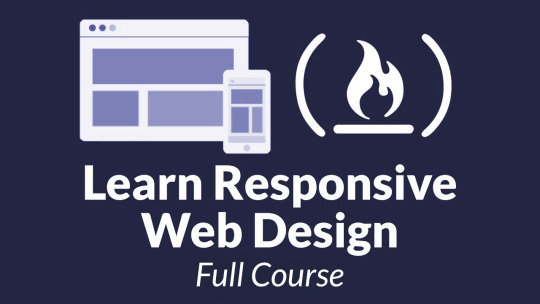
Introduction To Responsive Web Design by FreeCodeCamp.org [link]
Covers: HTML, CSS, Flexbox, Media Queries
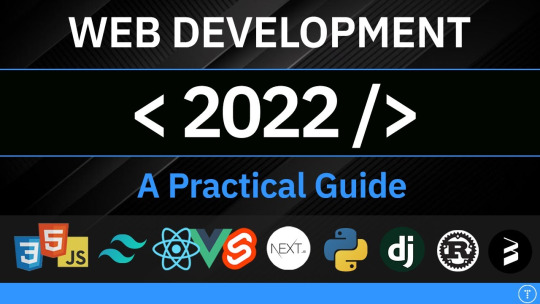
Web Development In 2022 - A Practical Guide by Traversy Media [link]
Covers: HTML, CSS, JavaScript, Sass, PostCSS, TypeScript fundamentals, Testing, Databases, GrapghQL, WordPress, REST APIs, UI kits & Libraries, Moblie Development fundamentals, Web3
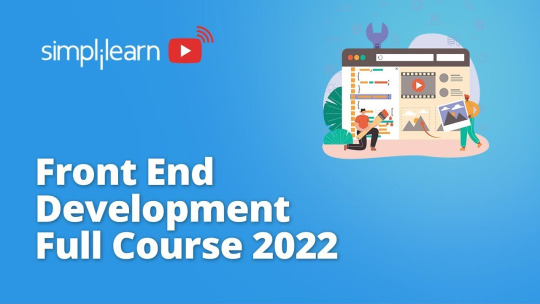
Front End Development Full Course 2022 | Front End Development Tutorial For Beginners by Simplilearn [link]
Covers: Git and GitHub, HTML, CSS, JavaScript, ReactJS, Angular
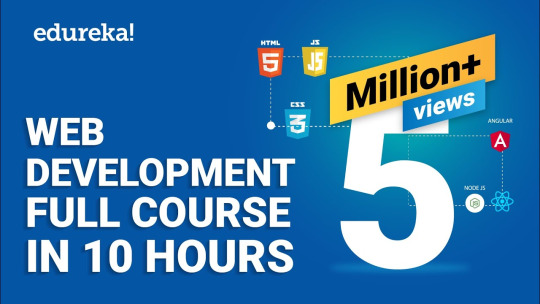
Learn Web Development from Scratch by Edureka [link]
Covers: HTML, CSS, JavaScript, Node.js, Express.js, MongoDB, TypeScript
┌── ⋆⋅☆⋅⋆
Well, that’s all! I hope the videos are helpful!! 😋
Have a nice day/night and happy programming 👍🏾💗
└── ⋆⋅☆⋅⋆
#xc: programming blog post#resources#coding resources#my resources#study resources#programming resource#programming#productivity#coding study#coding#learn to code#coder#computing#computer science#code#100daysofcode#100 days of productivity#projects#programmer#html#css#javascript#big data#node#project#learn how to code#how to code#100 days of code#codeblr
226 notes
·
View notes
Text
Transform Your Career with Our Live Full Stack MERN Course on StuIntern!
Are you eager to become a full-stack web developer and master the latest technologies? StuIntern.com is very thrilled to introduce our Live Full Stack MERN Developer Course crafted to equip you with the skills & the knowledge needed to excel in the tech industry. With a focus on hands-on learning & the real-world applications, this course is your gateway to becoming a proficient full-stack developer using the MERN stack.
Why Enroll in Our Live Full Stack MERN Course?
1. Comprehensive Curriculum: Our course covers the entire MERN stack—MongoDB, Express.js, React, and Node.js—ensuring you acquire a thorough understanding of how each of them function together. Some areas that would be covered include:
MongoDB: Learn to design & then manage databases using this powerful NoSQL database.
Express.js: Understand how to build scalable web applications & the APIs with this minimalist web framework for Node.js.
React: Master the art of creating dynamic & the responsive user interfaces with this popular JavaScript library.
Node.js: Gain expertise in server-side JavaScript and learn to create robust back-end solutions.
2. Expert Instructors: Our instructors are professionals from industry who have spent years of their lives acquiring deep technical knowledge as well as experience. This will enable them to give insights that are practical in nature so that you can know what best practices are as well as advanced techniques provided by actual experts.
3. Real-World Projects: With our project-based approach, put your skills into practice in real scenarios. This will involve working on practical assignments as well as building full-stack applications from scratch which will give you skills that are valuable in future employment opportunities.
4. Interactive Live Sessions: Our live classes offer an opportunity for direct communication between tutors and students. It aids instant feedback and dynamic discussions while deepening their understanding of complex concepts.
5. Affordable Pricing: At StuIntern.com, we believe quality education should be accessible. Our MERN Stack Development Course is priced competitively, offering exceptional value without compromising on content or support. Flexible payment options are available to suit your budget.
6. Lifetime Access: Enroll once and have lifetime access to everything including course session recordings, code samples, other resources etc. Get back at the material when you want or learn about stuff you missed earlier.
Course Highlights
Hands-On Learning: Build and deploy your own full-stack applications.
Expert Guidance: Receive mentorship and support from experienced developers.
Career Preparation: Gain practical skills and a portfolio of projects to showcase to potential employers.
Flexible Schedule: Join live sessions at times that fit your schedule, with recordings available for review.
How to Enroll
1. Visit StuIntern.com: Navigate to the MERN Stack Course page.
2. Select Your Plan: Choose the course package that aligns with your learning goals and budget.
3. Register Online: Fill out the registration form and complete your payment through our secure system.
4. Get Started: Receive all the necessary details to join live sessions and access course materials.
Don’t Wait—Transform Your Future Today!
Step forward in web development skill and create a path to a bright career with our Live MERN Stack Developer Course. Reserve your s-eat now because space is limited and start your journey to becoming an accomplished full-stack developer.
For further information, or to register go to StuIntern.com and take the first step in mastering the MERN stack.
StuIntern.com—Empowering Your Tech Career with Excellence!
3 notes
·
View notes
Text
Implementing RESTful APIs with Node.js
Learn how to build RESTful APIs with Node.js and Express.js. This guide covers project setup, CRUD operations, database integration, security, and best practices.
Introduction
RESTful APIs are a crucial component of modern web applications, enabling seamless communication between different services. Node.js, with its non-blocking, event-driven architecture, is an excellent choice for building scalable and efficient RESTful APIs. This guide will walk you through the process of creating a RESTful API using Node.js and Express.js, covering everything from…
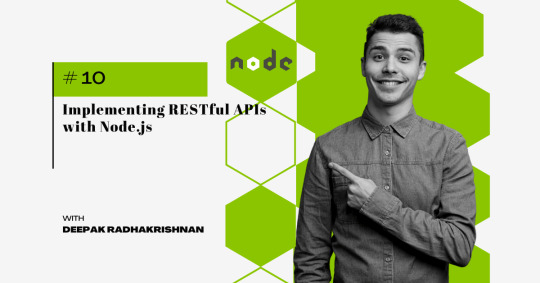
View On WordPress
#API security#CRUD operations#database integration#Express.js#JavaScript#Node.js#RESTful API#web development
0 notes
Text
Certainly! Let’s explore how to build a full-stack application using Node.js. In this comprehensive guide, we’ll cover the essential components and steps involved in creating a full-stack web application.
Building a Full-Stack Application with Node.js, Express, and MongoDB
1. Node.js: The Backbone of Our Application
Node.js is a runtime environment that allows us to run JavaScript on the server-side.
It’s built on Chrome’s V8 JavaScript engine and uses an event-driven, non-blocking I/O model, making it lightweight and efficient.
Node.js serves as the backbone of our application, providing the environment in which our server-side code will run.
2. Express.js: Simplifying Server-Side Development
Express.js is a minimal and flexible Node.js web application framework.
It provides a robust set of features for building web and mobile applications.
With Express.js, we can:
Set up middlewares to respond to HTTP requests.
Define routing rules.
Add additional features like template engines.
3. MongoDB: Storing Our Data
MongoDB is a document-oriented database program.
It uses JSON-like documents with optional schemas and is known for its flexibility and scalability.
We’ll use MongoDB to store our application’s data in an accessible and writable format.
Building Our Full-Stack Application: A Step-by-Step Guide
Setting Up the Environment:
Install Node.js:sudo apt install nodejs
Initialize a new Node.js project:mkdir myapp && cd myapp npm init -y
Install Express.js:npm install express
Creating the Server:
Create a basic Express server:const express = require('express'); const app = express(); const port = 3000; app.get('/', (req, res) => { res.send('Hello World!'); }); app.listen(port, () => { console.log(`Server running at http://localhost:${port}`); });
Defining Routes:
Define routes for different parts of our application:app.get('/user', (req, res) => { res.send('User Page'); });
Connecting to MongoDB:
Use Mongoose (a MongoDB object modeling tool) to connect to MongoDB and handle data storage.
Remember, this is just the beginning! Full-stack development involves frontend (client-side) work as well. You can use React, Angular, or other frontend libraries to build the user interface and connect it to your backend (Node.js and Express).
Feel free to explore more about each component and dive deeper into building your full-stack application! 😊 12
2 notes
·
View notes
Text
Top 20 Backend Development Tools In 2023
Backend development plays a crucial role in the operation and performance optimisation of web and mobile applications, serving as their foundational framework. In the context of the dynamic technological environment, it is imperative for developers to remain abreast of the most recent and effective backend development technologies. In the year 2023, a plethora of advanced tools have surfaced, leading to a significant transformation in the approach to backend development. Reach out to Nivida Web Solutions - a noted Web development company in Vadodara and let's craft a website that sets you apart.
This analysis aims to examine the leading 20 backend development tools projected for the year 2023, which possess the potential to optimise operational effectiveness, raise work output, and achieve exceptional outcomes.
1. Node.js:
Node.js continues to be a prominent contender in the realm of backend development, offering a resilient framework for constructing scalable, server-side applications through the utilisation of JavaScript. The asynchronous and event-driven nature of the system renders it highly suitable for real-time applications and microservices.
2. Express.js:
Express.js is a Node.js framework that offers a basic and flexible approach to backend development. It achieves this by providing streamlined routing, efficient handling of HTTP requests, and effective management of middleware. The software possesses a high degree of extensibility, allowing developers to create tailored solutions.
3. Django:
Django, a renowned Python framework, is widely recognised for its exceptional performance, robust security measures, and remarkable scalability. The framework adheres to the "batteries-included" principle, providing a wide range of pre-installed functionalities and libraries that enhance the speed and efficiency of the development process.
4. Flask:
Flask, an additional Python framework, is characterised by its lightweight nature and user-friendly interface. The framework offers fundamental capabilities for backend development and enables developers to incorporate additional functionalities as required, thus rendering it very adaptable.
5. Spring Boot:
Spring Boot, which is built on the Java programming language, streamlines the process of creating applications that are ready for deployment by employing a convention-over-configuration methodology. The platform provides a variety of functionalities to construct resilient and scalable backend systems. Embark on a digital journey with Nivida Web Solutions - the most distinguished Web development company in Gujarat. Let's create a stunning, functional website tailored to your business!
6. Ruby on Rails:
Ruby on Rails, also referred to as Rails, is renowned for its high level of efficiency and user-friendly nature. The framework employs the Ruby programming language and places a strong emphasis on convention over configuration, facilitating expedited development processes.
7. ASP.NET Core:
ASP.NET Core is a highly adaptable and efficient cross-platform framework that facilitates the development of backend solutions through the utilisation of the C# programming language. The product provides exceptional performance, robust security measures, and effortless compatibility with many systems.
8. Laravel:
Laravel, a framework developed using the PHP programming language, is well-acknowledged for its sophisticated syntax and user-centric functionalities. The utilisation of this technology streamlines intricate operations such as authentication, caching, and routing, hence facilitating an expedited development procedure.
9. NestJS:
NestJS is a Node.js framework that adheres to the architectural patterns established by Angular, hence exhibiting a progressive nature. The software possesses a high degree of modularity, hence facilitating the scalability and maintenance of applications. NestJS places a strong emphasis on the principles of maintainability and testability.
10. RubyMine:
RubyMine is an influential integrated development environment (IDE) designed specifically for the purpose of facilitating Ruby on Rails development. The software provides advanced code assistance, navigation, and debugging functionalities, hence augmenting the efficiency of Ruby developers. Looking for a standout web presence? Let Nivida Web Solutions - the most popular Web development company in India craft a website that impresses. Reach out now and let's get started!
11. PyCharm:
PyCharm, an integrated development environment (IDE) designed specifically for the Python programming language, is extensively utilised in the realm of backend development. The software offers intelligent code completion, comprehensive code analysis, and integrated tools to facilitate fast development and debugging processes.
12. IntelliJ IDEA:
IntelliJ IDEA, a widely utilised integrated development environment (IDE), provides comprehensive support for multiple programming languages, encompassing Java, Kotlin, and many more. The software is renowned for its advanced coding assistance and efficient capabilities, which greatly assist backend developers in producing code of superior quality.
13. Visual Studio Code (VSCode):
VSCode is a code editor that is known for its lightweight nature and open-source nature. Due to its extensive extension library and high level of customizability, this platform is widely favoured by backend developers due to its versatile nature.
14. Postman
Postman is an efficient and powerful application programming interface (API) testing tool that streamlines the process of doing backend testing and facilitating communication among developers. This tool facilitates the efficient design, testing, and documentation of APIs, hence assuring a smooth integration process. Every click counts in the digital world. Partner with Nivida Web Solutions - one of the top Web development companies in Vadodara to create a user-friendly, engaging website. Choose Nivida Web Solutions to boost your online impact!
15. Swagger:
Swagger, currently recognised as the OpenAPI Specification, serves to enable the process of designing, documenting, and evaluating APIs. The standardised structure of API description facilitates the seamless and uncomplicated integration process.
16. MongoDB:
MongoDB, a widely adopted NoSQL database, has notable advantages in terms of scalability, flexibility, and superior performance. Due to its capacity to effectively manage substantial quantities of data and accommodate various data models, it is extensively employed in the realm of backend development.
17. PostgreSQL:
PostgreSQL, an open-source relational database management system, is widely recognised for its robustness, adaptability, and comprehensive SQL capabilities. This option is highly recommended for projects that necessitate a resilient backend data repository.
18. Redis:
Redis is an essential component for caching and real-time analytics due to its ability to store data structures in memory. The indispensability of this technology lies in its high performance and its capability to effectively manage data structures, hence facilitating the optimisation of backend processes.
19. Kafka:
Apache Kafka is a distributed streaming platform that handles real-time data processing. It's commonly used for building scalable, fault-tolerant backend systems that require high-throughput data ingestion and processing. Dive into the digital era with a website that wows! Collaborate with Nivida Web Solutions - one of the leading Web development companies in Gujarat and boost your online presence.
20. Docker:
Docker is a containerization technology that facilitates the streamlined deployment and scalability of programs. The utilisation of containers enables backend developers to encapsulate their programmes and associated dependencies, hence ensuring uniformity and adaptability across diverse contexts.
Final Thoughts:
It is of utmost importance for developers to be updated on the most recent backend development technologies in order to effectively offer applications that are efficient, scalable, and safe. The compendium of the foremost 20 backend development tools projected for the year 2023 encompasses an extensive array of functions, adeptly accommodating the multifarious requirements of backend development endeavours. These technologies provide developers with the ability to enhance their backend development endeavours and provide users with outstanding experiences, whether through the creation of real-time applications, database management, or performance optimisation. Your website is your digital storefront. Make it appealing! Contact Nivida Web Solutions - one of the most renowned Web development companies in India and design a website that captivates your audience. Get started now!
7 notes
·
View notes
Text
Mastering the Art of Hiring MERN Stack Programmers: A Step-by-Step Guide
The MERN stack is a popular technology stack. It is an acronym that stands for MongoDB, Express.js, React, and Node.js. Each component of the MERN stack serves a specific purpose in the development process. MongoDB is a NoSQL database that stores data in a JSON-like format, making it flexible and scalable. Express.js is a web application framework for Node.js that provides a set of features for building web applications and APIs. React is a JavaScript library for building user interfaces, and it allows developers to create reusable UI components. Node.js is a server-side JavaScript runtime that allows developers to build scalable network applications.
The MERN stack is known for its flexibility, efficiency, and performance. It allows developers to build full-stack applications using JavaScript, which makes the development process more streamlined and cohesive. Additionally, the MERN stack is well-suited for building real-time applications and single-page applications (SPAs). With its robust set of tools and technologies, the MERN stack has become a popular choice for businesses looking to develop modern, responsive web applications.
The Benefits of Hiring MERN Stack Programmers
Hiring MERN stack programmers can offer numerous benefits to businesses looking to develop web applications. MERN stack programmers are skilled in using MongoDB, Express.js, React, and Node.js to build dynamic and responsive web applications. They are proficient in JavaScript and have a deep understanding of the MERN stack architecture, making them valuable assets to any development team.
MERN stack programmers are also well-versed in modern web development practices and can leverage the latest tools and technologies to build high-quality applications. They are capable of developing scalable and efficient web applications that can handle large amounts of data and traffic. Additionally, MERN stack programmers are adept at building real-time applications and SPAs, which are increasingly in demand in today's digital landscape.
Furthermore, hiring MERN stack programmers can lead to faster development cycles and reduced time-to-market for web applications. Their expertise in the MERN stack allows them to build applications more efficiently, resulting in cost savings and improved productivity for businesses. Overall, hiring MERN stack programmers can provide businesses with the technical expertise and skills needed to develop modern, responsive web applications.
Where to Find Qualified MERN Stack Programmers
Finding qualified MERN stack programmers can be a challenging task, but there are several avenues businesses can explore to locate top talent. One option is to utilize online job boards and platforms specifically tailored to tech professionals, such as GitHub Jobs, Stack Overflow Jobs, and AngelList. These platforms allow businesses to post job listings and connect with experienced MERN stack programmers who are actively seeking new opportunities.
Another option is to partner with specialized tech recruitment agencies that have access to a network of skilled MERN stack programmers. These agencies can help businesses identify and recruit top talent by leveraging their industry connections and expertise in the tech sector. Additionally, businesses can attend tech conferences, meetups, and networking events to connect with MERN stack programmers and build relationships within the tech community.
Furthermore, businesses can explore freelance platforms such as Upwork and Toptal to find qualified MERN stack programmers who are available for short-term or project-based work. These platforms provide businesses with access to a global pool of tech talent and allow them to review portfolios and work samples before making hiring decisions. Overall, there are several avenues businesses can explore to find qualified MERN stack programmers, each with its own unique advantages and considerations.
How to Evaluate MERN Stack Programmers
Evaluating MERN stack programmers requires a comprehensive approach that takes into account their technical skills, experience, and cultural fit within the organization. One way to assess their technical proficiency is by conducting coding assessments or technical interviews that test their knowledge of JavaScript, MongoDB, Express.js, React, and Node.js. These assessments can help businesses gauge a candidate's ability to solve complex problems and write clean, efficient code using the MERN stack.
Another important aspect to consider when evaluating MERN stack programmers is their experience with building real-world applications using the MERN stack. Reviewing their portfolio and work samples can provide insight into the quality of their previous projects and their ability to deliver high-quality web applications. Additionally, businesses can ask candidates about their experience with specific tools and technologies within the MERN stack, such as Redux for state management in React applications or Mongoose for interacting with MongoDB.
Cultural fit is also an important factor to consider when evaluating MERN stack programmers. Businesses should assess a candidate's communication skills, teamwork abilities, and willingness to learn and adapt within a dynamic development environment. Conducting behavioral interviews or team-based exercises can help businesses gauge a candidate's interpersonal skills and how well they align with the company's values and culture. Overall, evaluating MERN stack programmers requires a holistic approach that considers their technical skills, experience, and cultural fit within the organization.
Interviewing MERN Stack Programmers
Interviewing MERN stack programmers requires careful preparation and consideration of the specific skills and qualities needed for the role. One approach is to conduct technical interviews that assess a candidate's knowledge of JavaScript, MongoDB, Express.js, React, and Node.js. These interviews can include coding exercises, problem-solving scenarios, or discussions about best practices for building web applications using the MERN stack.
Another important aspect of interviewing MERN stack programmers is assessing their experience with building real-world applications and their ability to work within a team environment. Asking candidates about their previous projects, challenges they faced, and how they collaborated with other team members can provide insight into their practical skills and teamwork abilities. Additionally, businesses can use behavioral interviews to assess a candidate's communication skills, problem-solving abilities, and how well they align with the company's values and culture.
Furthermore, businesses should consider conducting interviews that focus on specific tools and technologies within the MERN stack, such as Redux for state management in React applications or Mongoose for interacting with MongoDThese interviews can help businesses gauge a candidate's depth of knowledge in key areas of the MERN stack and their ability to leverage these tools effectively in real-world scenarios. Overall, interviewing MERN stack programmers requires a comprehensive approach that assesses their technical skills, practical experience, and cultural fit within the organization.
Onboarding MERN Stack Programmers
Onboarding MERN stack programmers is an important process that sets the stage for their success within the organization. One approach is to provide them with comprehensive training on the specific tools and technologies within the MERN stack, such as Redux for state management in React applications or Mongoose for interacting with MongoDThis training can help new hires become familiar with the company's development environment and best practices for building web applications using the MERN stack.
Another important aspect of onboarding MERN stack programmers is integrating them into the development team and providing opportunities for collaboration and knowledge sharing. Pairing new hires with experienced team members or mentors can help them acclimate to the company's culture and development processes while also providing them with valuable guidance and support as they ramp up on new projects.
Furthermore, businesses should consider providing new hires with access to resources such as documentation, code repositories, and development tools that will help them navigate their day-to-day responsibilities more effectively. This can include access to internal wikis or knowledge bases that contain information about the company's development processes, coding standards, and best practices for working with the MERN stack. Overall, onboarding MERN stack programmers requires a thoughtful approach that provides them with the training, support, and resources needed to succeed within the organization.
Retaining MERN Stack Programmers
Retaining MERN stack programmers requires ongoing efforts to support their professional growth, provide meaningful work opportunities, and foster a positive work environment. One approach is to offer professional development opportunities such as training programs, workshops, or certifications that allow MERN stack programmers to expand their skills and stay current with industry trends. This can help them feel valued within the organization and provide them with opportunities for career advancement.
Another important aspect of retaining MERN stack programmers is providing them with challenging and meaningful work that allows them to leverage their skills and contribute to impactful projects. Offering opportunities for ownership over projects or involvement in decision-making processes can help keep MERN stack programmers engaged and motivated within their roles.
Furthermore, fostering a positive work environment that values open communication, collaboration, and work-life balance can contribute to higher job satisfaction among MERN stack programmers. Providing opportunities for team-building activities, social events, or flexible work arrangements can help create a supportive and inclusive culture that encourages retention.
Overall, retaining MERN stack programmers requires ongoing efforts to support their professional growth, provide meaningful work opportunities, and foster a positive work environment that values their contributions. By investing in their development and well-being, businesses can increase retention rates among their MERN stack programmers and build a strong foundation for long-term success within their development teams.
2 notes
·
View notes